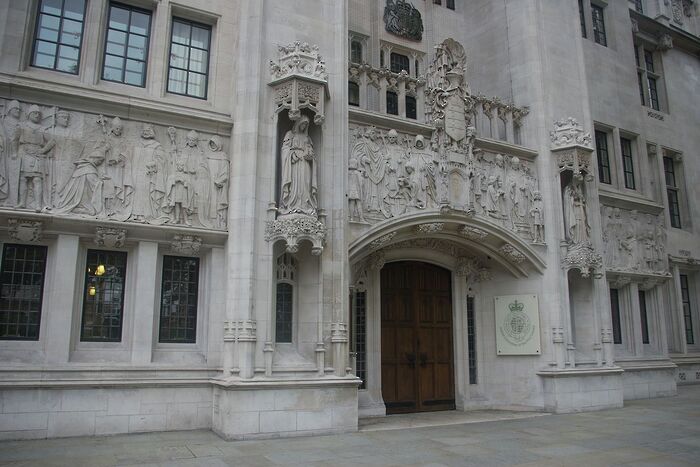Theresa May is a hostage to hard-line Brexiteers
Columnist Tom Nixon explains why the Prime Minister’s election failure was more than just a blow to the Conservatives

At the time of the last election, I believed that a weakened Conservative government could only be a good thing: enabling the involvement of the opposition in the Brexit process and therefore more of a national debate. I believed that the parliamentary weakness of the Conservatives would create a softer, more reasonable Brexit policy.
This has been true, to some extent, with the government’s fractional majority meaning that the opinions of other parties now have to be taken into account. However, parliamentary mathematics has the potential to shift us towards an extreme Brexit, as has been demonstrated by recent interventions from the Foreign Secretary, Boris Johnson.
The deal made between the Conservatives and the DUP after the general election, continues to be a contentious issue. It was not, however, the most dramatic power shift produced by the unexpected election result. Recent events have shown the potential of a handful of Conservative MPs to make a mockery of government manifesto promises. Universal Credit, the government’s long term overhaul of the benefits system, has recently come under intense criticism from Dame Louise Casey, the government’s former troubled families tsar.
“Theresa May is not a Prime Minister, but a hostage to the whim of powerful figures within her own party”
This intervention, alongside the abandonment of policies such as the introduction of new grammar schools, demonstrates just how weak May’s domestic agenda is. However, the spotlight has yet to really shine on the few angry Brexiteers capable of utterly derailing any moderation in the negotiations with the EU.
The PM’s recent speech in Florence highlighted a more conciliatory approach to Brexit. Although not satisfying the conditions for what the EU calls “sufficient progress,” the speech promised that the UK would honour its budgetary obligations. This is in sharp contrast to the rhetoric of the Tory government during the election campaign and gives remain voters some hope that a future Brexit deal would be less damaging. However, the intervention of the foreign secretary has endangered the government’s shift towards a more moderate negotiating policy.
Boris Johnson’s failure to gain leadership of the country has not removed his influence within parliament and now that May’s premiership is unstable he has been able to rock the boat. On the 15th September, Boris Johnson wrote an exclusive article for the Telegraph that railed against a soft approach to Brexit and restated the outrageous claim that £350 million a week could be rerouted straight from Britain’s EU budget contribution to the NHS. This rattled the Tory government and the sight of senior Tory ministers like Amber Rudd turning out on live TV to declaim Johnson was a sign of the deep trouble the Conservatives were in.
However, this was not enough to dissuade Johnson, and he has written yet another article, stating his personal vision for Brexit. His four “red lines” included a demand for a transition period to be limited to two years and for no paid-for access to the single market. This kind of dissent within the ministerial ranks is reminiscent of the last years of John Major. It is almost unheard of in the Tory party’s recent history, and shows a wider malaise in the present government.
If a couple of articles can shake May’s control of her own Brexit policy, the pressure to achieve a deal that satisfies the Brexit ultras within her party must be significant. Theresa May is not a Prime Minister, but a hostage to the whim of powerful figures within her own party. She has lost all authority and everyone around her knows it. A senior MP, quoted in the New Statesman, lamented: “Poor Theresa, she’s in office but not in power. What is the point of being Prime Minister if you’re chained to the radiator in No 10?”
Although the compromised position of the Prime Minister is probably satisfying for Labour supporters, so long as this precarious balance is continued, it is profoundly dangerous for the whole country. Whilst Brexiteers and Remainers battle it out behind the puppet of Theresa May, any agreement, and therefore a good Brexit deal, is far from likely. At worst, we might be forced to exit the EU with nothing agreed, fulfilling the dreams of reactionary politicians like Nigel Farage
 News / Deborah Prentice named highest-paid Russell Group VC6 January 2025
News / Deborah Prentice named highest-paid Russell Group VC6 January 2025 Fashion / The decline of Depop and the rise of Vinted5 January 2025
Fashion / The decline of Depop and the rise of Vinted5 January 2025 Features / An investigation into women and sex at Cambridge7 January 2025
Features / An investigation into women and sex at Cambridge7 January 2025 Film & TV / Squid Game season 2: an entertaining but uninspired sequel8 January 2025
Film & TV / Squid Game season 2: an entertaining but uninspired sequel8 January 2025 News / News in Brief: SU says sayonara to sabbs (again) and Cunk comes to Cambridge5 January 2025
News / News in Brief: SU says sayonara to sabbs (again) and Cunk comes to Cambridge5 January 2025





